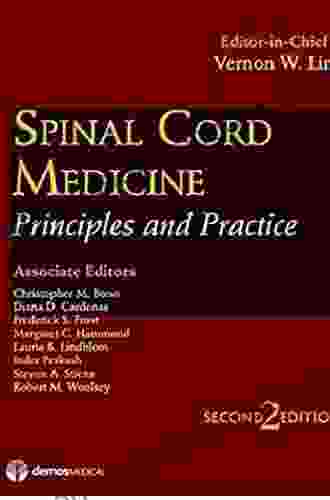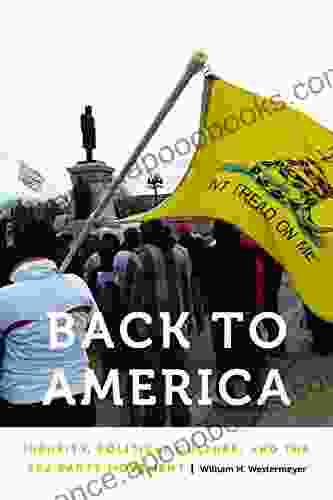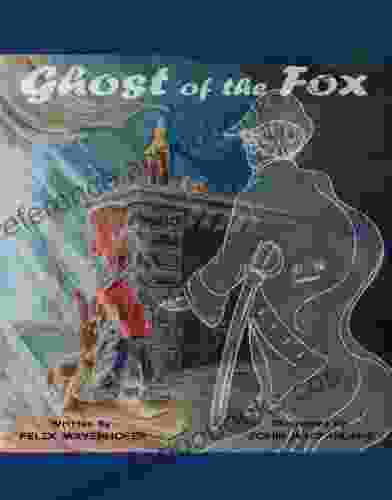Identity, Political Culture, and the Tea Party Movement: An Anthropological Perspective

The Tea Party movement is a complex and multifaceted phenomenon that has had a significant impact on American politics. In this book, I examine the Tea Party movement through the lens of anthropology, exploring its identity, political culture, and implications for American democracy.
I argue that the Tea Party movement is best understood as a form of identity politics. Tea Party members define themselves in opposition to a perceived elite that they believe is out of touch with their values and interests. This sense of identity is based on a number of factors, including race, class, religion, and geography.
4.6 out of 5
| Language | : | English |
| File size | : | 1341 KB |
| Text-to-Speech | : | Enabled |
| Screen Reader | : | Supported |
| Enhanced typesetting | : | Enabled |
| Word Wise | : | Enabled |
| Print length | : | 233 pages |
| Lending | : | Enabled |
| X-Ray for textbooks | : | Enabled |
The Tea Party movement's political culture is characterized by a deep distrust of government and a belief in the free market. Tea Party members believe that government is too big, too powerful, and too intrusive in their lives. They advocate for lower taxes, less regulation, and a smaller government.
The Tea Party movement has had a significant impact on American politics. It has helped to shift the Republican Party to the right and has contributed to the rise of Donald Trump. The Tea Party movement is also a reminder of the deep divisions that exist in American society.
This book is based on ethnographic research that I conducted with Tea Party members in North Carolina. I interviewed Tea Party members, attended Tea Party rallies, and participated in Tea Party online forums. My research provides a unique insider's perspective on the Tea Party movement.
This book is essential reading for anyone who wants to understand the Tea Party movement and its implications for American democracy. It is a timely and important contribution to the scholarship on American politics.
Chapter 1: The Identity of the Tea Party Movement
In this chapter, I explore the identity of the Tea Party movement. I argue that Tea Party members define themselves in opposition to a perceived elite that they believe is out of touch with their values and interests. This sense of identity is based on a number of factors, including race, class, religion, and geography.
I begin by discussing the historical roots of the Tea Party movement. I trace the movement's origins to the anti-tax protests of the American Revolution and the populist movements of the 19th and 20th centuries. I then examine the role of race, class, and religion in the Tea Party movement. I show how Tea Party members use these factors to define themselves in opposition to the perceived elite.
Finally, I discuss the implications of the Tea Party movement's identity for American democracy. I argue that the movement's focus on identity politics has contributed to the polarization of American politics. I also discuss the potential for the Tea Party movement to challenge the status quo and bring about positive change.
Chapter 2: The Political Culture of the Tea Party Movement
In this chapter, I examine the political culture of the Tea Party movement. I argue that Tea Party members are characterized by a deep distrust of government and a belief in the free market. Tea Party members believe that government is too big, too powerful, and too intrusive in their lives. They advocate for lower taxes, less regulation, and a smaller government.
I begin by discussing the historical roots of the Tea Party movement's political culture. I trace the movement's roots to the libertarian movement of the 1960s and 1970s. I then examine the role of the media, the internet, and social media in shaping the Tea Party movement's political culture. I show how these factors have contributed to the movement's distrust of government and its belief in the free market.
Finally, I discuss the implications of the Tea Party movement's political culture for American democracy. I argue that the movement's distrust of government and its belief in the free market have contributed to the gridlock in Washington, D.C. I also discuss the potential for the Tea Party movement to challenge the status quo and bring about positive change.
Chapter 3: The Tea Party Movement and American Democracy
In this chapter, I examine the implications of the Tea Party movement for American democracy. I argue that the movement has had a significant impact on American politics. It has helped to shift the Republican Party to the right and has contributed to the rise of Donald Trump. The Tea Party movement is also a reminder of the deep divisions that exist in American society.
I begin by discussing the Tea Party movement's impact on the Republican Party. I show how the movement has helped to push the Republican Party to the right on issues such as taxes, spending, and government regulation. I then examine the Tea Party movement's role in the rise of Donald Trump. I show how the movement's distrust of government and its belief in the free market helped to pave the way for Trump's victory.
Finally, I discuss the Tea Party movement's implications for American democracy. I argue that the movement's focus on identity politics has contributed to the polarization of American politics. I also discuss the potential for the Tea Party movement to challenge the status quo and bring about positive change.
In this book, I have examined the Tea Party movement through the lens of anthropology. I have explored the movement's identity, political culture, and implications for American democracy. I have argued that the Tea Party movement is best understood as a form of identity politics. Tea Party members define themselves in opposition to a perceived elite that they believe is out of touch with their values and interests. This sense of identity is based on a number of factors, including race, class, religion, and geography.
The Tea Party movement's political culture is characterized by a deep distrust of government and a belief in the free market. Tea Party members believe that government is too big, too powerful, and too intrusive in their lives. They advocate for lower taxes, less regulation, and a smaller government.
The Tea Party movement has had a significant impact on American politics. It has helped to shift the Republican Party to the right and has contributed to the rise of Donald Trump. The Tea Party movement is also a reminder of the deep divisions that exist in American society.
I believe that the Tea Party movement is a complex and multifaceted phenomenon. It is a product of the historical, social, and economic forces that have shaped American society. The Tea Party movement is also a reflection of the deep divisions that exist in American society. I believe that it is important to understand the Tea Party movement in Free Download to better understand American politics and society.
4.6 out of 5
| Language | : | English |
| File size | : | 1341 KB |
| Text-to-Speech | : | Enabled |
| Screen Reader | : | Supported |
| Enhanced typesetting | : | Enabled |
| Word Wise | : | Enabled |
| Print length | : | 233 pages |
| Lending | : | Enabled |
| X-Ray for textbooks | : | Enabled |
Do you want to contribute by writing guest posts on this blog?
Please contact us and send us a resume of previous articles that you have written.
 Book
Book Novel
Novel Page
Page Chapter
Chapter Text
Text Story
Story Genre
Genre Reader
Reader Library
Library Paperback
Paperback E-book
E-book Magazine
Magazine Newspaper
Newspaper Paragraph
Paragraph Sentence
Sentence Bookmark
Bookmark Shelf
Shelf Glossary
Glossary Bibliography
Bibliography Foreword
Foreword Preface
Preface Synopsis
Synopsis Annotation
Annotation Footnote
Footnote Manuscript
Manuscript Scroll
Scroll Codex
Codex Tome
Tome Bestseller
Bestseller Classics
Classics Library card
Library card Narrative
Narrative Biography
Biography Autobiography
Autobiography Memoir
Memoir Reference
Reference Encyclopedia
Encyclopedia Ann Belford Ulanov
Ann Belford Ulanov Aleta Hodge
Aleta Hodge Sandra K Yocum
Sandra K Yocum Tatjana Schnell
Tatjana Schnell Charlie Robinson
Charlie Robinson Aaron Oster
Aaron Oster Stephen Knapp
Stephen Knapp A L Knorr
A L Knorr R E Mcdermott
R E Mcdermott Larry Mccabe
Larry Mccabe Shonna Slayton
Shonna Slayton Stephany Travers
Stephany Travers Kevin Jackson
Kevin Jackson Abul Pitre
Abul Pitre Djanet Sears
Djanet Sears Arjun Appadurai
Arjun Appadurai Thomas Thompson
Thomas Thompson Phyllis F Mcmanus
Phyllis F Mcmanus Cherime Macfarlane
Cherime Macfarlane Lori Matthews
Lori Matthews
Light bulbAdvertise smarter! Our strategic ad space ensures maximum exposure. Reserve your spot today!
 Kendall WardFollow ·7.7k
Kendall WardFollow ·7.7k Carlos FuentesFollow ·11.7k
Carlos FuentesFollow ·11.7k Franklin BellFollow ·16.7k
Franklin BellFollow ·16.7k Colin FosterFollow ·4.9k
Colin FosterFollow ·4.9k Arthur MasonFollow ·9k
Arthur MasonFollow ·9k Arthur Conan DoyleFollow ·15.5k
Arthur Conan DoyleFollow ·15.5k Jamison CoxFollow ·17k
Jamison CoxFollow ·17k Dan HendersonFollow ·11.5k
Dan HendersonFollow ·11.5k

 Justin Bell
Justin BellUnlock National Biology Success: The Ultimate Guide to...
Mastering the Fundamentals: A Comprehensive...
 Luke Blair
Luke BlairAC/DC: The Early Years with Bon Scott – A Thunderstruck...
In the annals of rock and roll history, few...

 Darren Nelson
Darren NelsonSpinal Cord Medicine Second Edition: The Comprehensive...
The second edition of Spinal Cord Medicine...

 Cole Powell
Cole PowellArabian Horse Training: Unlock the Secrets for a...
Indulge in the captivating world of Arabian...

 Oscar Wilde
Oscar WildeRevise Curriculum For Excellence SQA Exams: The Ultimate...
The Scottish...

 David Peterson
David PetersonEndoscopic Ear Surgery: A Comprehensive Guide for...
Endoscopic Ear...
4.6 out of 5
| Language | : | English |
| File size | : | 1341 KB |
| Text-to-Speech | : | Enabled |
| Screen Reader | : | Supported |
| Enhanced typesetting | : | Enabled |
| Word Wise | : | Enabled |
| Print length | : | 233 pages |
| Lending | : | Enabled |
| X-Ray for textbooks | : | Enabled |












